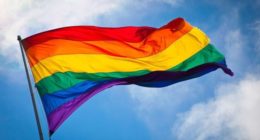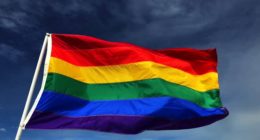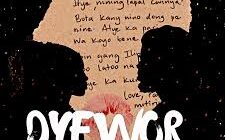By Charles Muhumuza
Much has been documented about the African Writers Conference at Makerere in 1962, organized by exiled South African writer Ezekiel Mphalele (later Es’lia Mphalele) where a collective of then-budding and established writers converged to chart a way forward for African literature. These included writers like Wole Soyinka, Chinua Achebe, Lewis Nkosi, James Ngugi (later known as Ngugi wa Thiongo), Okot P’bitek, Robert Serumaga, Grace Ogot, Rebecca Njau, and Langston Hughes, among a few other names.
At the time, Uganda was aiming to be a powerhouse of African literature, fueled by the machinery that was Makerere University, the biggest institution of higher learning in black Africa.
Then the tumultuous 1970s happened, and writers, alongside politicians and notable individuals, started disappearing through state abductions, others fleeing to exile. Uganda’s publication capacity went down, with very few books of substance published during that time. Literature, therefore, took a slump. There were no writers putting out work and no mentors for the younger generation. The shooting rocket that was Ugandan literature promised to land on the moon simply came crashing down.
You must have noticed something about the names from the Makerere convention, save for two, the rest are starkly masculine names. With the exception of the Kenyan ladies Grace Ogot and Rebecca Njau, women were mostly excluded. No Ugandan woman is reported to have attended the conference. Though not intentionally, a series of institutional practices and structural policies had left many women out of educational and literary spaces. It was the 60s.
Literature is not something that can be switched on and off, it’s a culture, and cultures take decades, centuries even, to take shape. It’s the new 20s now, and for the past 20 years, a new literature renaissance has been taking root in Uganda. And women are at the helm.
By the sheer determination of these women, literature has been brought back to the light in Uganda, putting her on the map of great literature as she once promised to be.
As one of these women, Jennifer Nansubuga Makumbi, asserted, “Uganda is no longer a literary desert…”, in reference to a Taban lo Liyong assertion in 1969 that East Africa was a literary desert. She was speaking to the UK’s The Guardian after winning the Commonwealth Short Story Prize in 2014.
Jennifer Nansubuga Makumbi is now a household name in the country and a world-famous writer. Ugandan literature can boast of an international superstar if I’m to quote The Economist.

Jennifer Nansubuga Makumbi
In 2013, Makumbi won the ‘kwani?’ Manuscript Project for The Kintu Saga, which was her Ph.D. thesis while at Lancaster University where she went on to lecture thereafter. The novel, published as “Kintu” is a multi-generational epic that examines generational curses and Baganda mythology. The novel also won the prestigious Windham Campbell Prize in 2018.
A serial prize winner, something that speaks to the quality of her work, her next novel, The First Woman, won the Jhalak Prize in 2021. Also published under the title “a girl is a body of water” in the Americas, the novel is an unapologetically feminist coming of age tale of “survival, rebellion, and the enduring nature of the female spirit”.
In between the two novels, Makumbi published the highly acclaimed short story collection, Manchester happened.
One cannot talk about contemporary literature in Uganda and fail to mention Doreen Baingana. Baingana is the author of Tropical Fish, a novel/linked short stories about the lives of three sisters growing up in Entebbe after the fall of Idi Amin.

She has published a couple of children’s books; Gamba the Gecko Wants to Drum, and My Fingers Are Stuck. She has thrice been nominated for the Caine Prize for African writing; in 2004, 2005, and most recently in 2021. The evident longevity of her career portrays the kind of writer she is.
Baingana has been published in outlets such as AGNI, Granta, and Chimurenga among so many others, and by many, I mean I could fill up my required word count listing them.
Her stories have been translated into various languages and adapted into other media such as plays. Her expertise in the field has seen her appointed as a judge for The Commonwealth Short Story Prize, 9mobile Prize for Literature, and the Hurston-wright prize.
But what is writing without publishing? One woman making a path for Ugandan literature through the mountain that is publishing is Nyana Kakoma. Nyana Kakoma is the founder and publishing director of ‘Sooo Many Stories’, an independent publishing house that publishes fiction and creative non-fiction by Ugandans, runs book clubs, and builds libraries.
Nyana Kakoma
Also a writer in her own right, Kakoma has published stories such as Chief Mourner in the Caine Prize Anthology for African writing of 2013; A Memory This Size, and Other Stories. She then moved to the ‘behind the scenes of writing by working as a facilitator for Writivism and was awarded the Modjaji Books Fellowship by the African Writers Trust and Commonwealth Writers.
Through ‘Sooo Many Stories’, Kakoma has published a poetry collection “The Headline That Morning” By Peter Kagayi Ngobi, a children’s book The Pearl Trotters In Black, Yellow, Red By Acan Innocent Immaculate, and a memoir, Flame And Song By Philippa Namutebi Kabali Kagwa. This is in line with the firm’s dream to open minds by creatively sharing Ugandan stories.
Surveys consistently show that women are the bigger consumers of literature, so it only makes sense that the writers and the publishers of the literature should be representative of the final consumers.
Though so many challenges still prevail, these women are giving new identities to the face of Ugandan literature, voicing the experiences of women on identity, Ugandanness, sexuality, and marriage. For the journey of Ugandan literature, these women are saying as one aptly titled short story by Makumbi put it: “let’s tell this story properly.”










